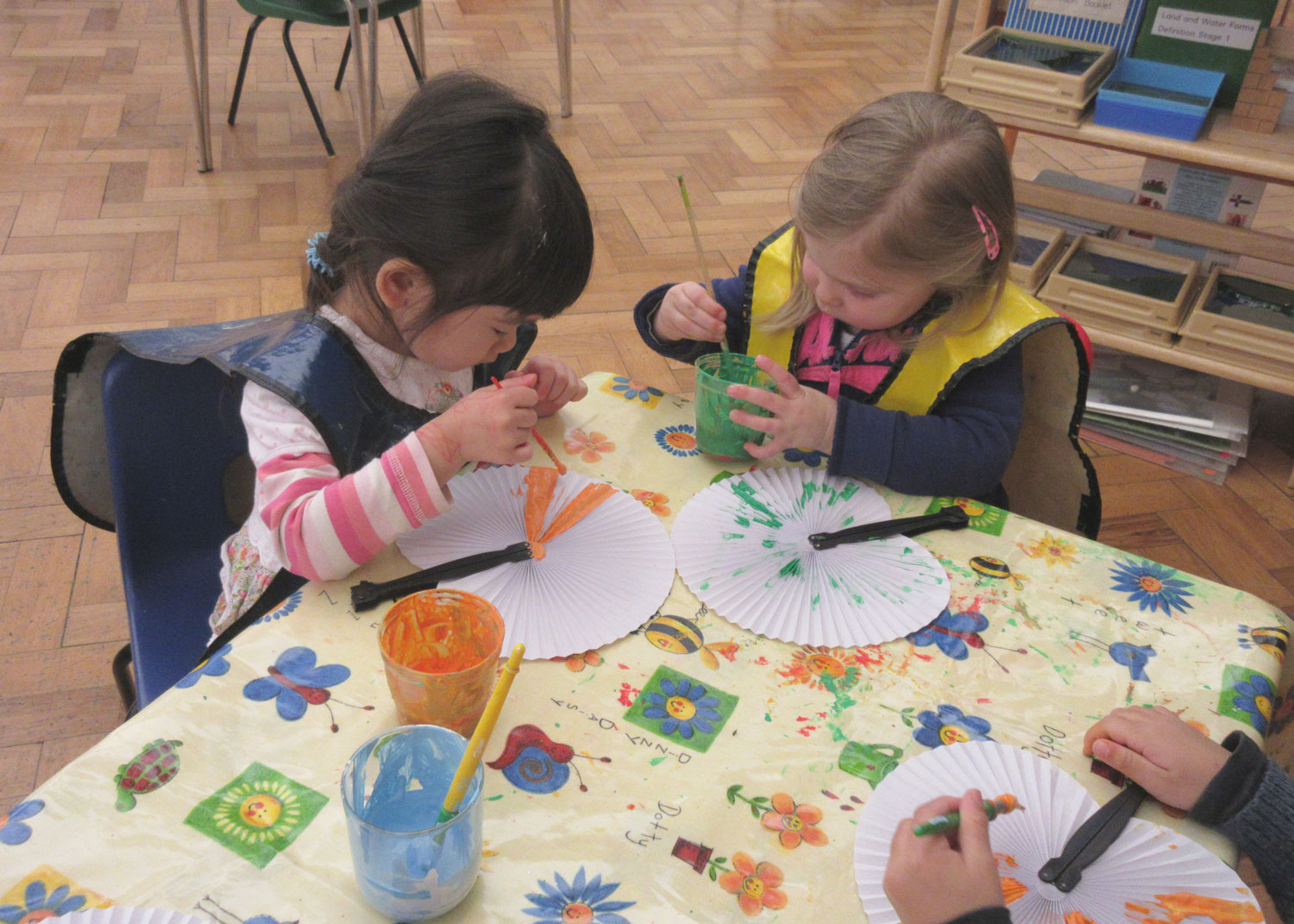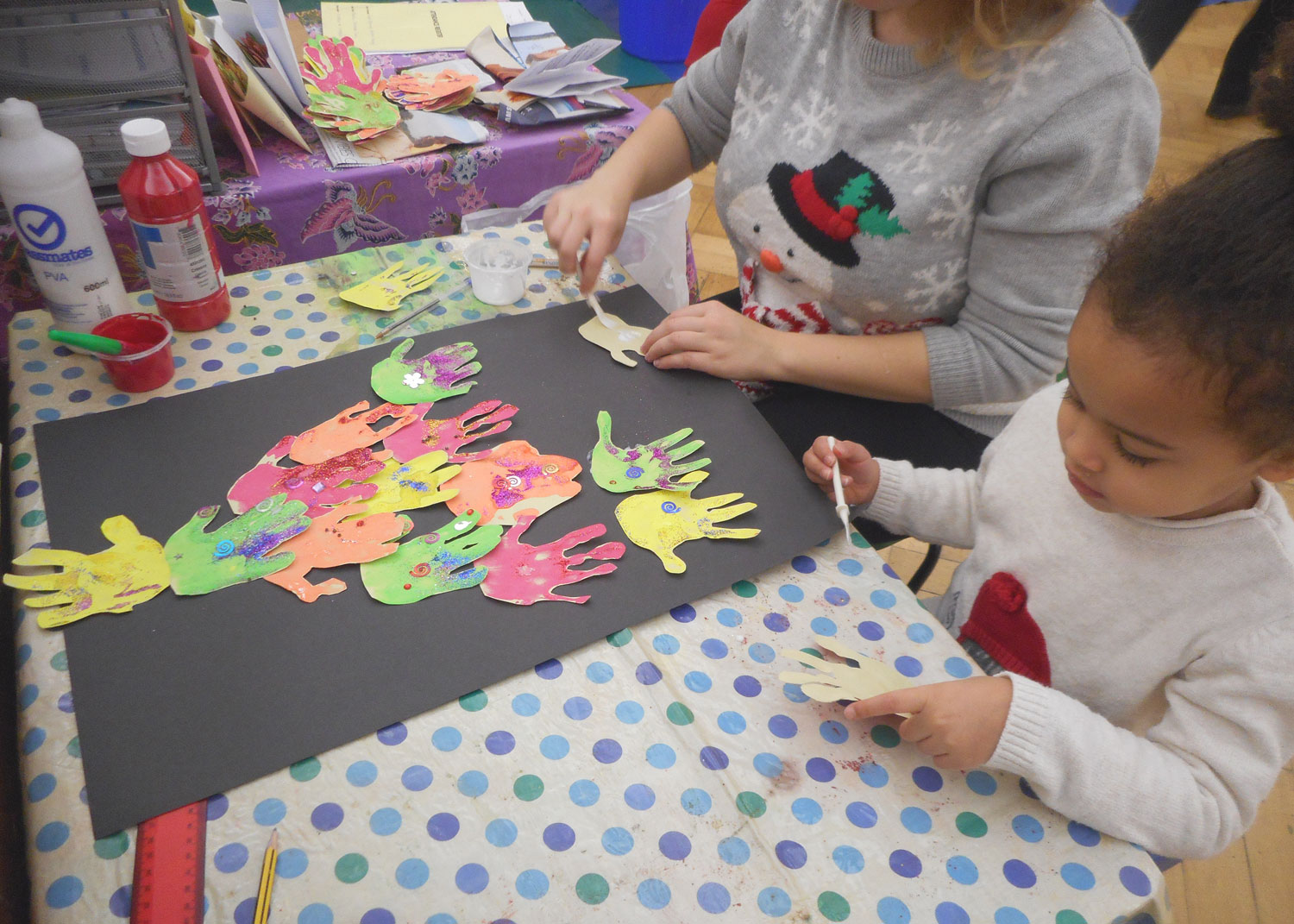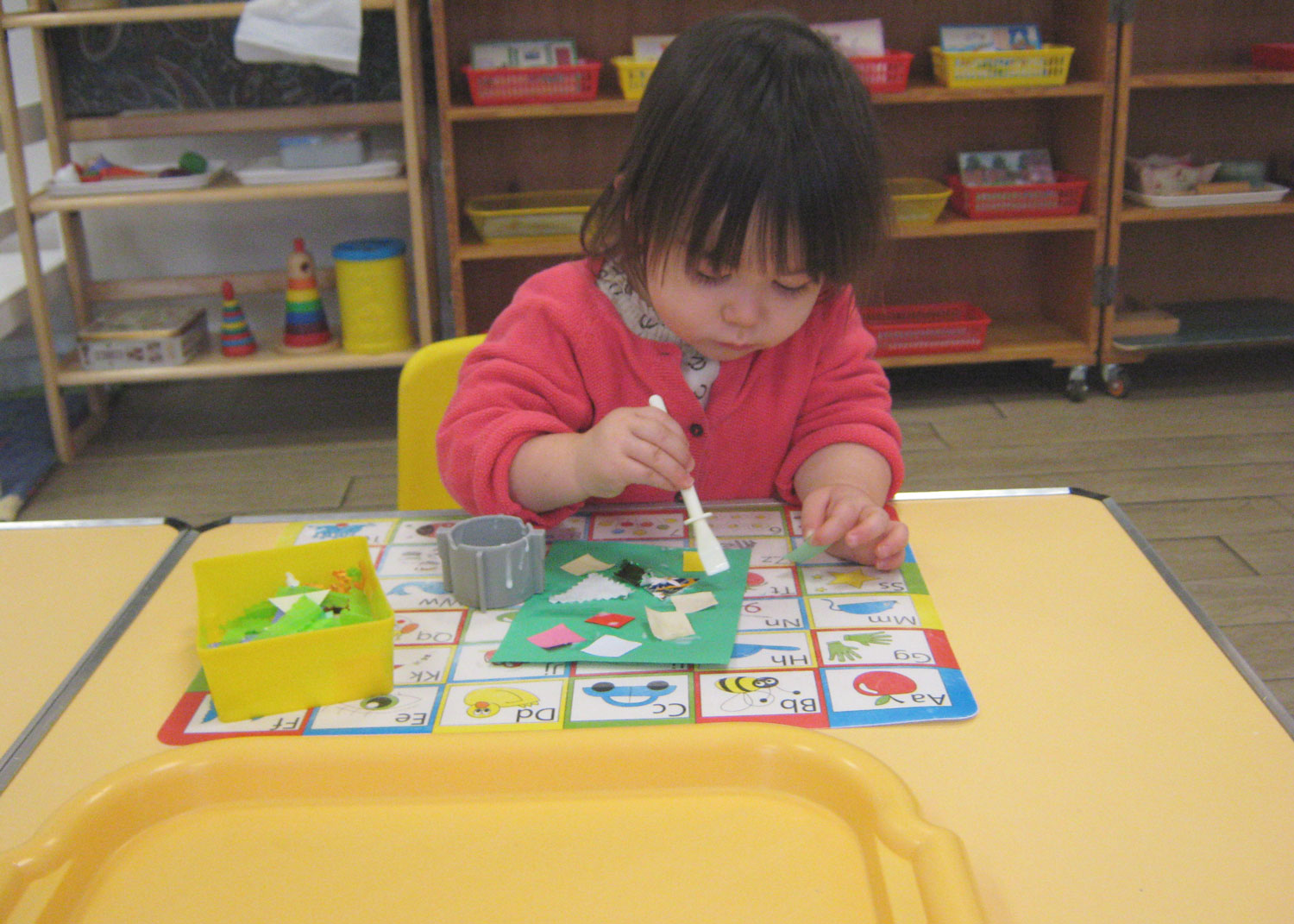Practical Life
Practical life activities help the child to perfect skills needed for everyday life, for example pouring, tying laces and laying a table. The child is involved in these activities throughout their time at school. They are attracted by the precise movements, the step-by-step approach from start to finish and the individual effort that they put into the activities culminating in the joy of completed work.

Practical life activities lay the foundation for all other sensorial, language, mathematics and culture work that they will do at school by:
— Aiding the growth of independence — ‘help me to do it by myself’
— Enabling the child to develop co-ordination of movement
— Enabling the child to develop concentration – through repetition of activity helping the child to adapt to his culture, use of knife and fork, chopsticks etc.
Sensorial
From birth onwards the young child has been learning about the world through their different senses. The specially designed Montessori materials encourage the child of this age to further develop and refine these senses (sight, smell, hearing, taste and touch).

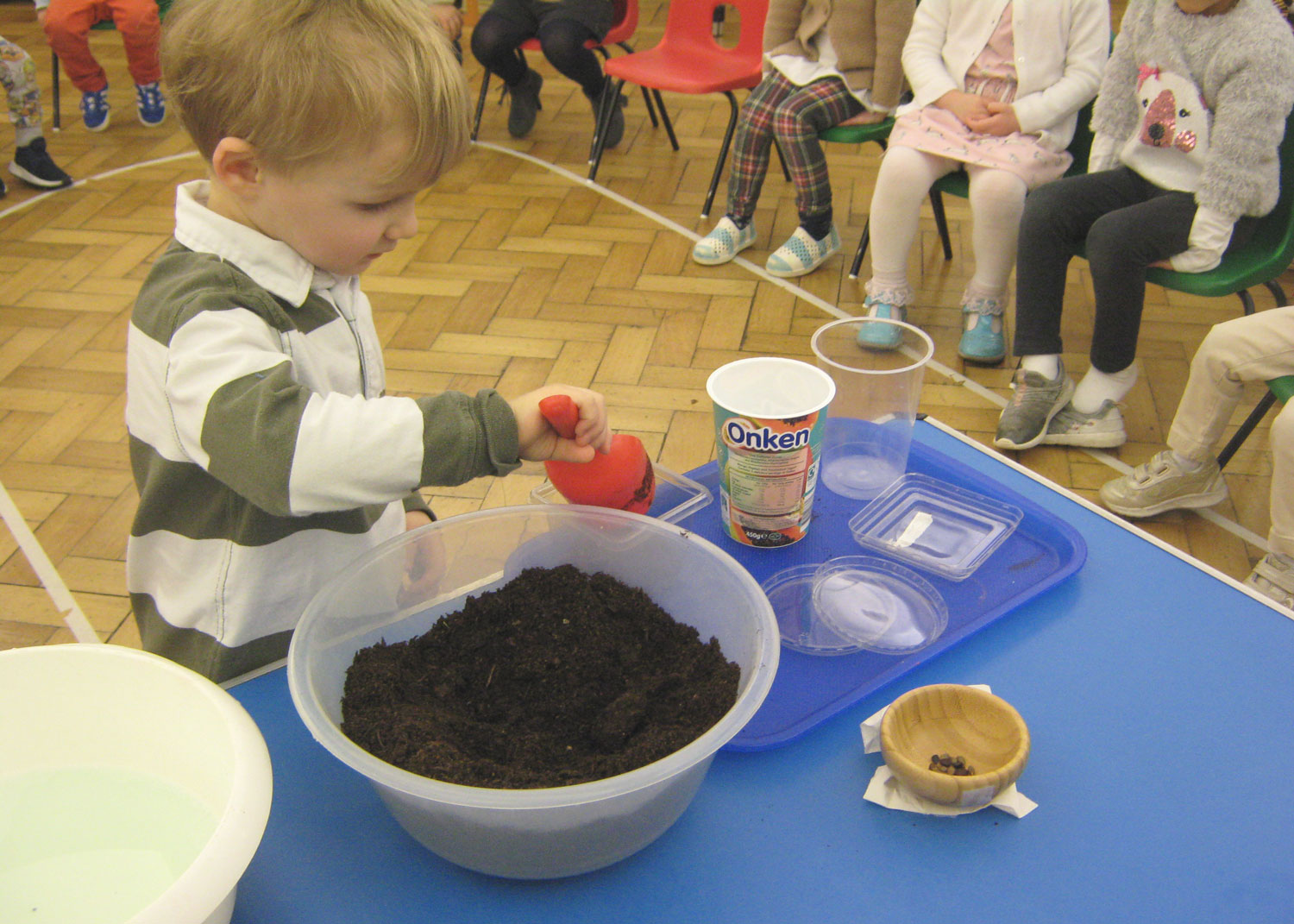
Language
The very young baby is always drawn to the sound of the human voice from the beginnings of life. The sensitivity for language is very powerful in the child until around 6 years of age. Therefore, at Great Beginnings we do many activities to help the child increase their vocabulary and develop their conversational skills during this key period.
The shapes and sounds of the letters of the alphabet are taught with the aid of letters made out of sandpaper from around the age of 3 1⁄2 years. Writing and reading follow on as a natural progression and are taught in a fun and enjoyable way.

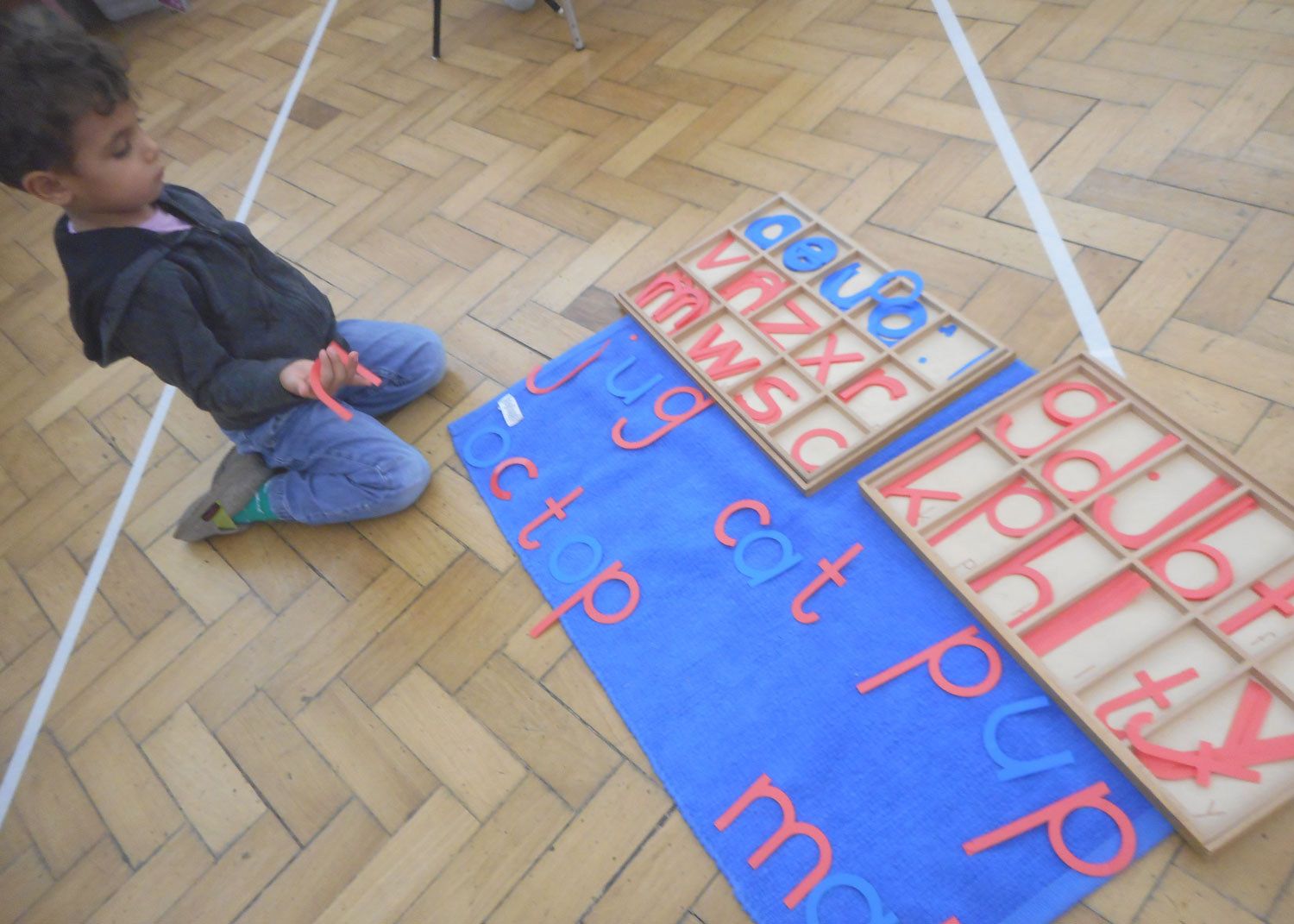
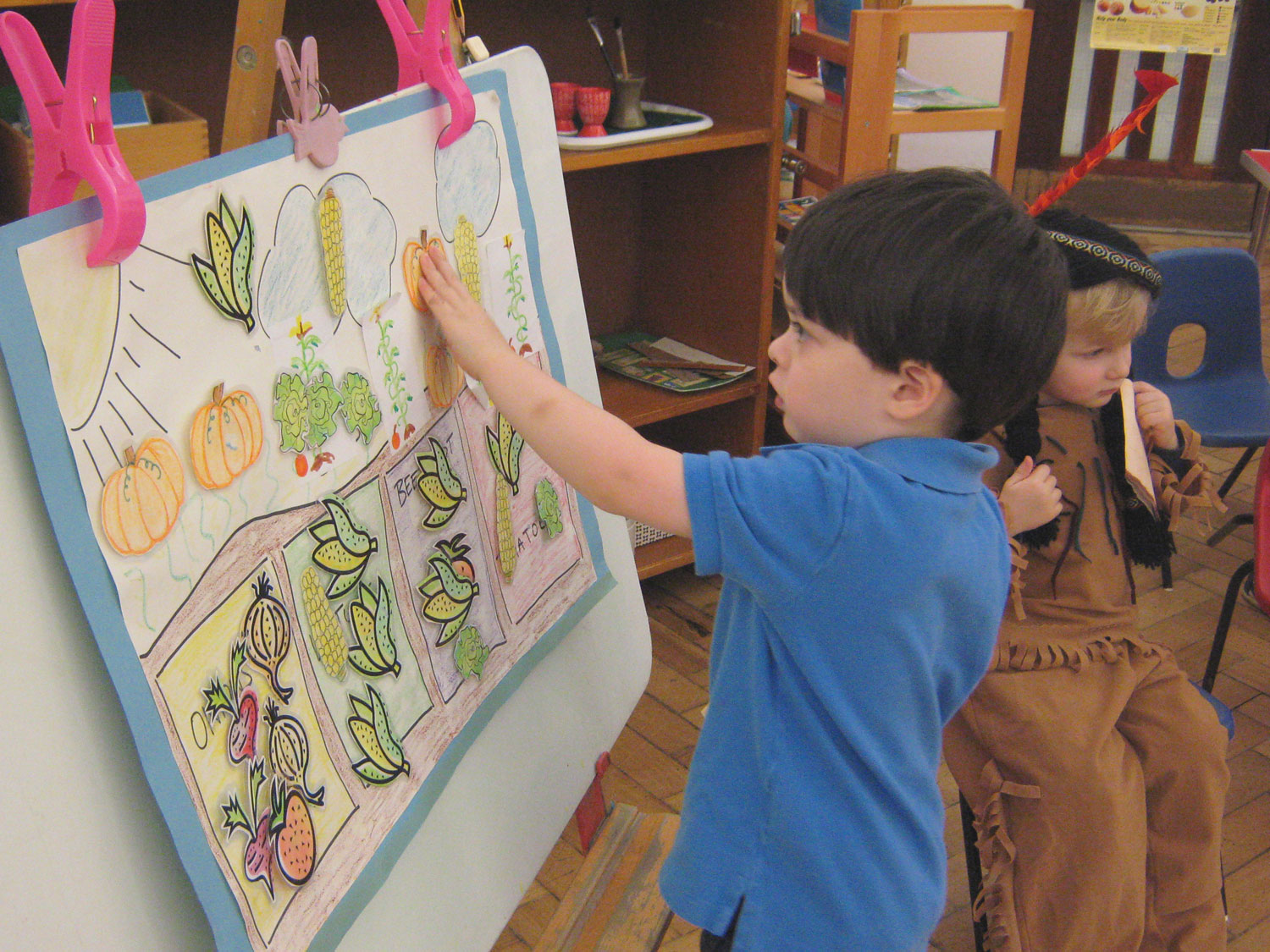
Mathematics
At around four years of age the child is ready to experience the Montessori mathematical materials. One new concept is taught at a time starting with numbers 1 to 10, proceeding on to the decimal system, counting and the four rules (addition, subtraction, multiplication and division). Uniquely designed materials provide concrete ideas and sensory experiences of these concepts. Gradually the child can move confidently towards the completion of abstract mathematical problems. Montessori educated children leave Great Beginnings with a great love of numbers and mathematics.
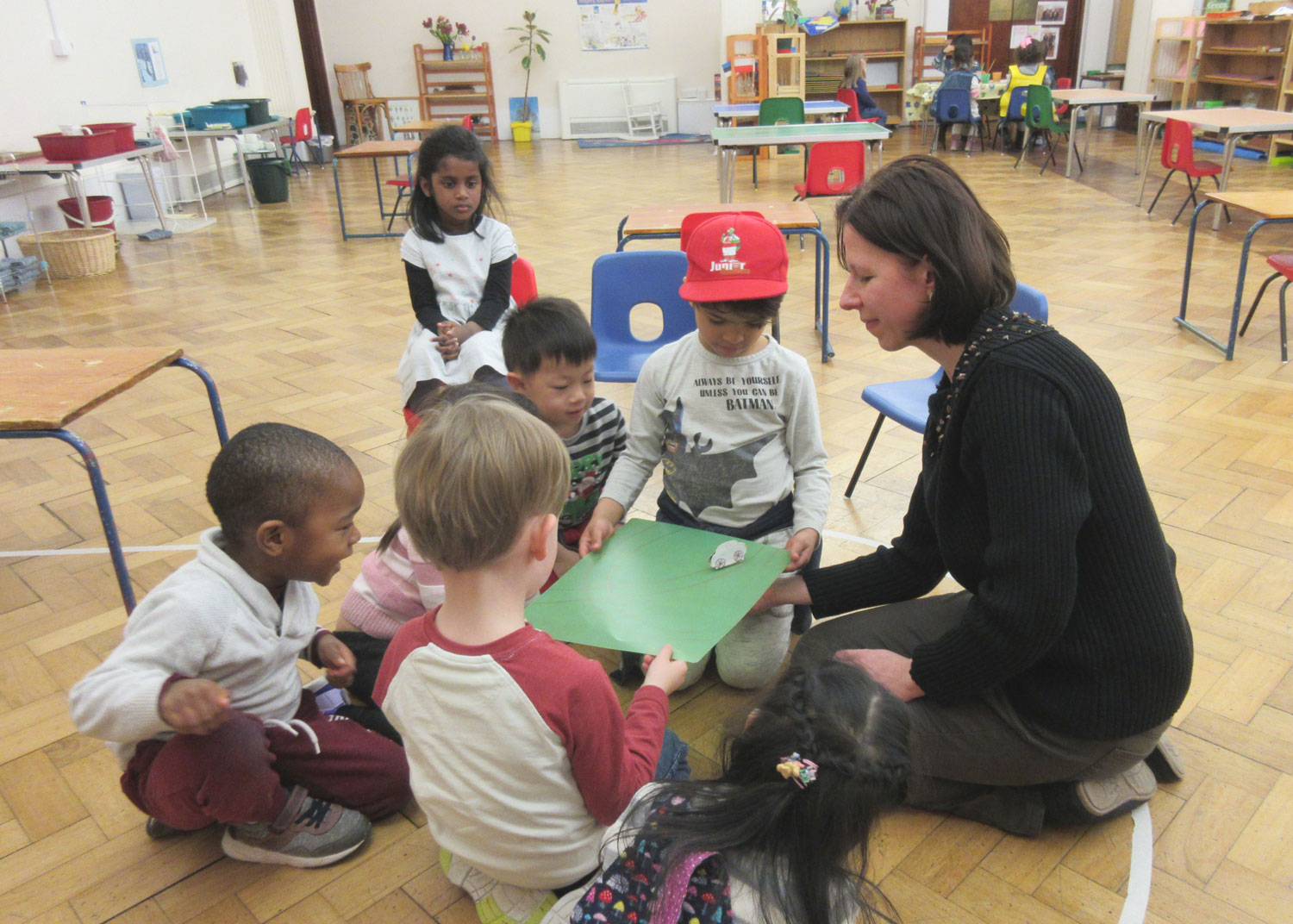

Science and Arts
The cultural activities cover a wide area of general knowledge from the world. It covers flowers and plants, animals, geography, music, famous people, art and introduces history in a fun way.
